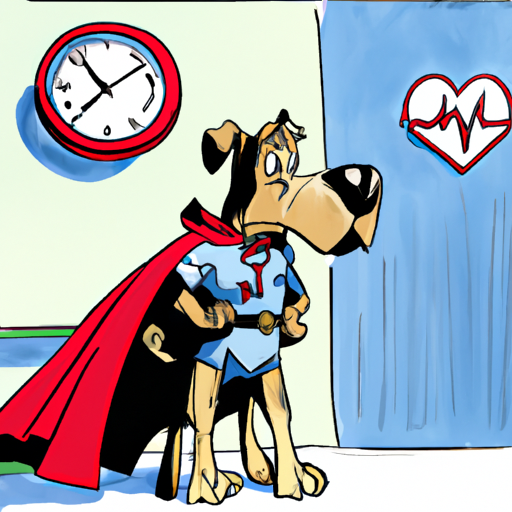Understanding Congestive Heart Failure in Dogs
Congestive heart failure (CHF) in dogs is an unfortunate reality for many pet owners. As a caregiver, you’re likely to have many questions about your furry friend’s condition. In essence, CHF is a condition where your dog’s heart can’t pump blood effectively, leading to fluid build-up in the lungs, abdomen, or other parts of the body.
Here’s a simple table to help you understand the difference between a healthy heart and a heart with CHF:
| Healthy Heart | Heart with CHF |
|---|---|
| Efficiently pumps blood | Struggles to pump blood |
| No fluid buildup | Fluid buildup in various parts of the body |
| No or slight fatigue after activity | Fatigue easily after activity |
Life Expectancy of Dogs with CHF
Your dog’s life expectancy with CHF can vary based on numerous factors. These include the stage of the disease, the overall health of your dog, and the treatment they receive. On average, dogs with CHF live between 6 months to 2 years after diagnosis, but with early detection and proper treatment, they can live longer.
Importance of Early Detection and Treatment
Early detection and treatment play a critical role in managing CHF in dogs. Symptoms of CHF can include:
- Coughing
- Difficulty breathing
- Rapid or irregular heartbeat
- Fatigue
- Loss of appetite
If you notice any of these signs, reach out to your vet immediately. Early diagnosis can lead to more effective treatment plans and potentially extend your dog’s life.
Managing Your Dog’s CHF
As a caregiver, you can take various actions to help manage your dog’s CHF:
- Diet: Provide a heart-healthy diet. This can include foods low in sodium and high in Omega-3 fatty acids. Consult your vet for the best dietary plan for your dog.
- Exercise: Keep your pet active, but avoid strenuous activity. Gentle walks can help keep your dog’s heart healthy without overexertion.
- Medication: Follow the prescribed medication routine religiously. This can help to delay the progression of CHF.
- Regular Check-ups: Schedule regular check-ups with your vet to monitor your dog’s condition.
Coping with Your Dog’s CHF
Dealing with your dog’s CHF can be emotionally challenging. Remember, it’s okay to feel a range of emotions. Reach out to support groups or a counselor if you need help coping.
Remember, your love and care can make a significant difference in your dog’s life. Even though the journey might be tough, cherishing the moments you share can bring comfort and peace.
FAQ Section
Q1: What causes CHF in dogs?
A1: It can be due to various factors, including age, breed, and underlying health conditions.
Q2: Can CHF be cured?
A2: While there’s no cure for CHF, it can be managed with medication, diet, and lifestyle changes.
Q3: How can I make my dog comfortable with CHF?
A3: Provide a comfortable rest area, keep them calm, and avoid overexertion.
Q4: How can I tell if my dog’s condition is worsening?
A4: Increased fatigue, difficulty breathing, or loss of appetite can signal worsening condition. Always consult your vet if you notice changes.



